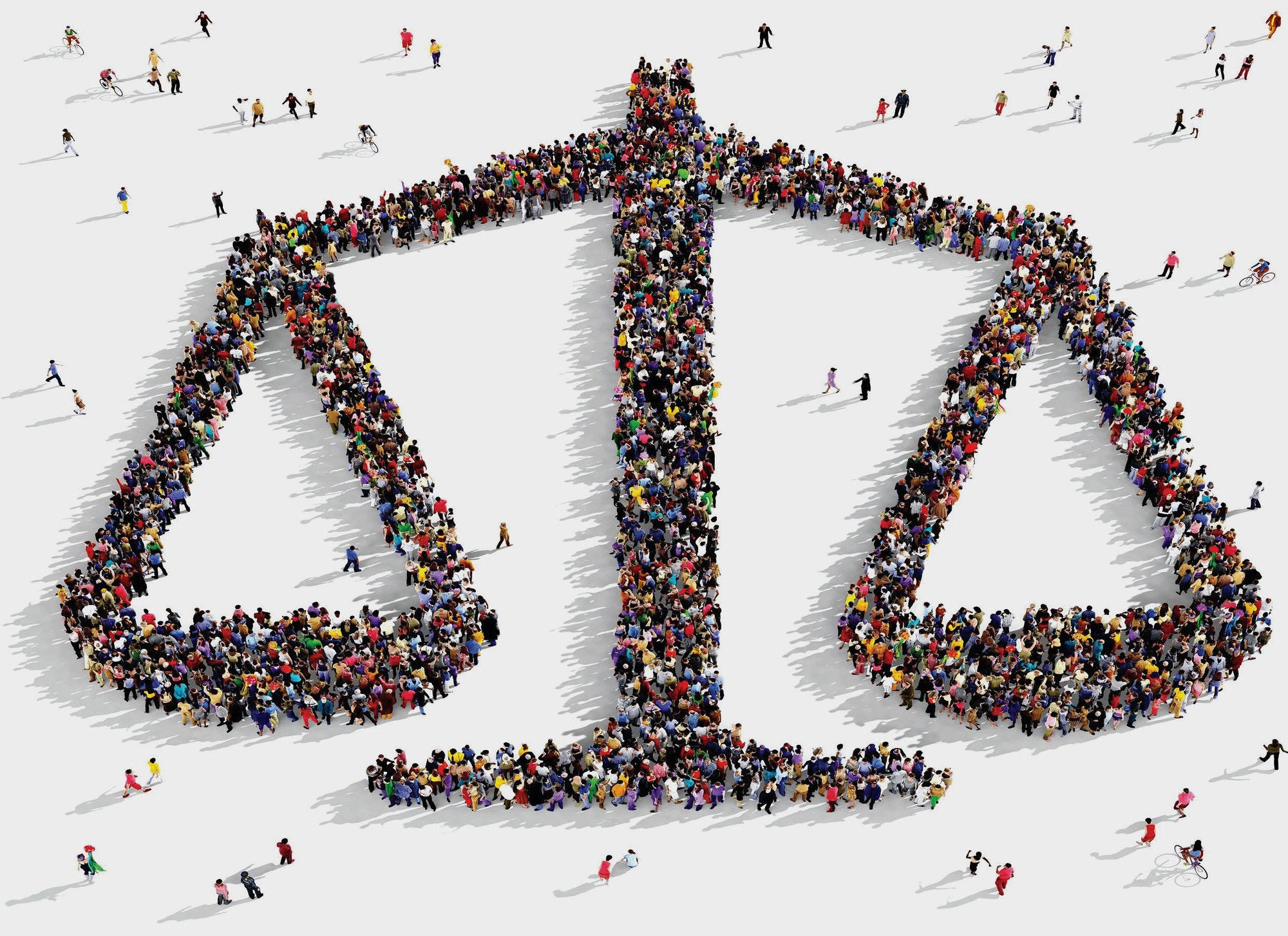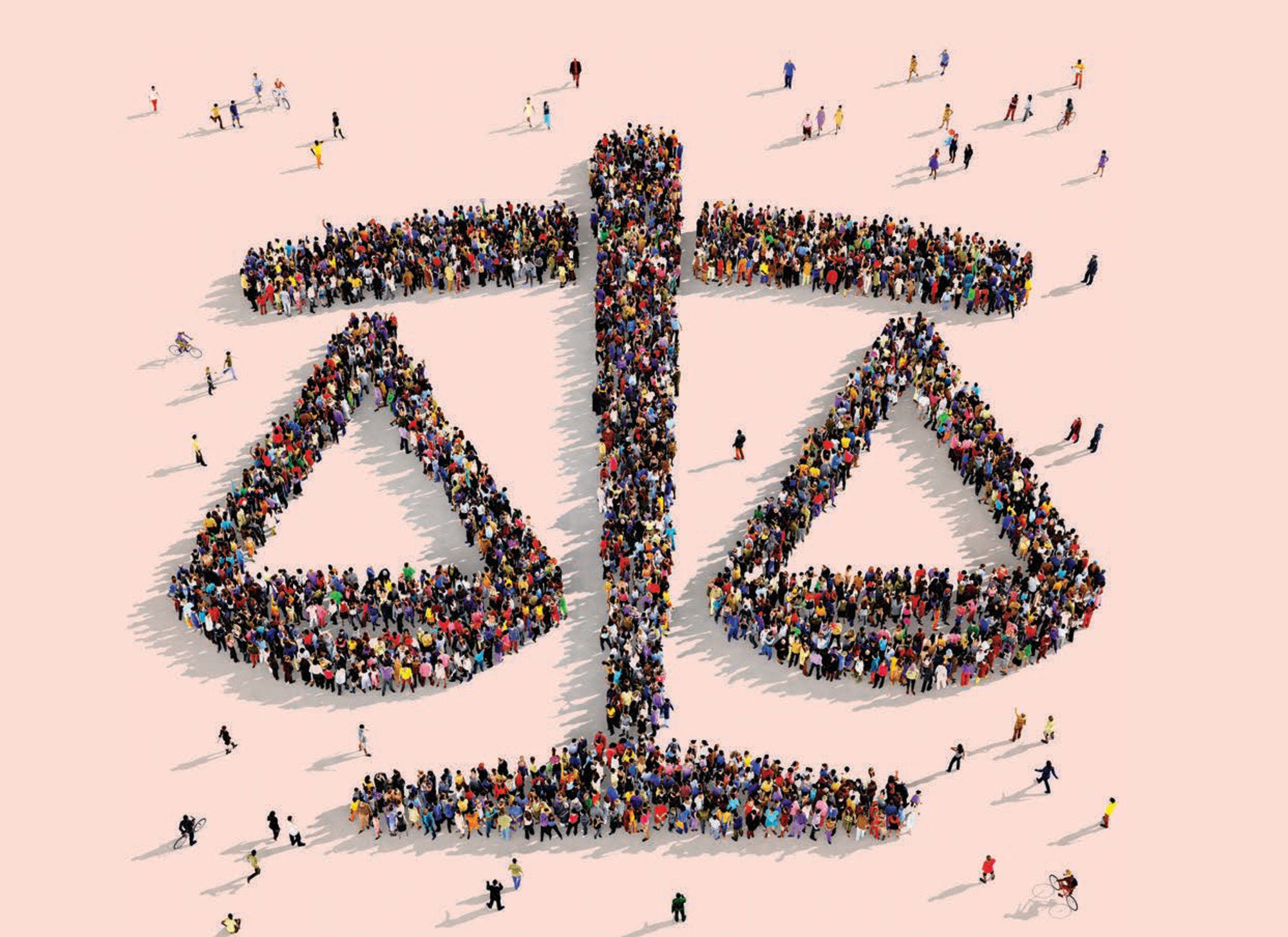Yet, gaps in empirical data and evidence on people’s justice needs and on access remain. Addressing these gaps can provide the evidence to support the transformation of justice systems. Accessible and responsive justice systems can also support other public institutions in addressing global challenges including climate change, criminal transboundary networks, tax avoidance and evasion, to take a few.
Access to justice
Rule of Law and access to justice play crucial role in restoring trust, ensuring respect of democratic values and supporting an inclusive recovery. Citizens expect equal access to justice, in line with the Riga Justice Agenda, which focused on developing an integrated and interdisciplinary justice response to present and future global crises. The key role of access to justice is recognised to enable democracies to deliver on people’s expectations, as improving access to justice is a key part of accessible government, in line with the SDG Agenda to leave no one behind.

Key messages
The work on indicators will also deepen the measurement of people-centred access to justice, in line with the SDG target 16.3, to understand whether justice systems are truly delivering what people need, the outcomes achieved for clients and how they experience justice and legal care.
Our work in this area helps policymakers have a better understanding of ‘what works’ in justice policy, planning and service delivery initiatives. Our analysis looks at the ways in which various people and business can resolve their dispute resolution problems, including relying on alternative dispute resolution mechanisms. Our analysis focuses on disadvantaged groups, including elderly, children, micro, small and medium enterprises, indigenous, racial and ethnic minorities. We also review how countries can leverage the use of technology, data and innovation in promoting access to justice.
Context
Access to justice focuses on enabling meaningful participation in the justice system
On average, OECD countries scored 0.65 out of a maximum of 1 points in the accessibility and affordability of civil justice dimension of the 2022 World Justice Project (WJP) Rule of Law index, an increase of 0.03 points since 2016. The Netherlands (0.79), Denmark (0.78), and Germany (0.77) had the highest scores. The most significant increases were in Estonia (0.08 points), Denmark, Finland, Sweden and Türkiye (+0.07 each) (Figure 3.16). Scores fell in the United Kingdom (-0.04), the Czech Republic, Mexico (-0.02 each) and Chile (-0.01).
An independent judicial system is key to ensuring a fair resolution of cases.
Pressure on judges can come from outside the judicial system (e.g. the government or media) or from within, from peers or superiors (e.g. a court president annulling the ruling of a judge in their court without due process) (ENCJ, 2014). In 2022, on average, OECD countries scored 0.72 out of a maximum of 1 points for freedom from improper government influence (Figure 3.18). The highest scores are for Ireland (0.95), Norway (0.94), Denmark (0.91) and Finland (0.89), and the lowest for Türkiye (0.19), Hungary (0.34), Mexico (0.42) and Poland (0.62). The OECD average fell by 0.03 points between 2016 and 2022. Some countries slightly improved their scores since 2016, including Belgium, France (0.03 points each), New Zealand, Sweden, Estonia (0.02 each) and Greece and Spain (0.01 each) but 12 countries experienced a decrease.
Related publications
Related policy issues
-
Policies are not always neutral; gender bias may be hiding in government decision making, which risks exacerbating inequality and discrimination. Gender mainstreaming, a strategic approach that integrates a gender lens across government action and policy decisions, is one of the most effective ways for governments to promote gender equality.Learn more
-
The spread of false and misleading information poses significant risks to the well-being of people and society. While such content is not necessarily illegal, it can contribute to polarisation, jeopardise the implementation of policies, and undermine trust in democratic institutions and processes. Action is required to strengthen the integrity of information spaces to protect freedom of expression and democratic engagement.Learn more
-
The impact of years of health, geopolitical and economic crises have heightened the urgency for governments to ensure accurate and timely information exchange and reconnect with citizens. Yet, amidst the challenges posed by an increasingly complex information environment, governments also find themselves presented with new avenues for public communication, stemming from the digital transformation.Learn more
-
The case for action to strengthen our democracies is clear: lower voter turnout in many countries, diminishing trust, greater political polarisation, and larger groups disassociating themselves from traditional democratic processes are testing our institutions and hindering governments’ ability to effect positive change for citizens. Our work on open government looks at how governments ensure the inclusion, quality and impact of participatory processes to enable all citizens and stakeholders to influence government activities and decision making and actively participate in the public life.Learn more
-
Countries face a crisis of trust which becomes increasingly concerning amid economic downturns, health emergencies and other crises. Since democracies require citizen trust in government to function effectively, the OECD Trust Survey provides governments with the data, tools and solutions necessary to assess trust in public institutions, understand long-term trends and enable them to take direct policy action, targeted at the root causes of low trust.Learn more
-
Societal upheavals such as population ageing, digitalisation, rising inequalities, and climate change bring about profound uncertainties for young people and future generations. Despite unparalleled access to information, education, and technology, trust among young people in government is low amidst new threats to the resilience of democratic institutions.Learn more














